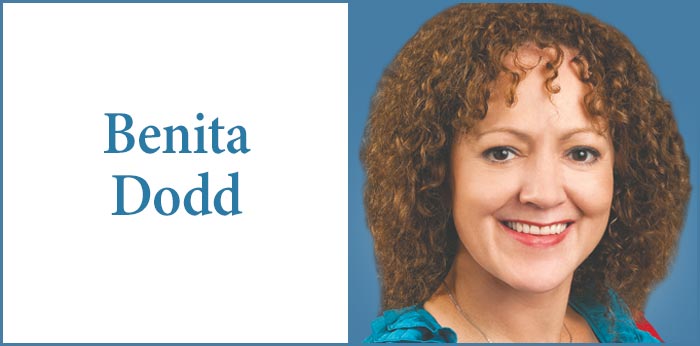“Civil society” is the latest catchphrase in public policy circles, and for good reason. Personal responsibility and individual initiative have been relinquished to government in unprecedented measure and, related to it, civil discourse has become increasingly rare.
What is “civil society?” Howard Husock, vice president for policy research at The Manhattan Institute, says he has a “glib” definition.
“Civil society is everything that is illegal in China,” Husock told a group in Atlanta recently.
“Independent churches – no, no, no! Independent foster agencies – forget about it. … These independent organizations are viewed as a threat to the government because they’re self-organized. They’re not approved by the government. That is civil society: spontaneous organization.”
Husock’s new book is “Who Killed Civil Society? The Rise of Big Government and Decline of Bourgeois Norms.” He writes, “[D]espite the massive scale and blanket coverage of the modern social service state, it fails to provide something essential that only civil society – operating independently from government revenue and its restraints – can offer: the modeling of habits and values that lay the foundation for upward social mobility and life as a contributor to one’s community.”
Only civil society can impart norms, according to Husock, who emphasizes, “It is norms, not material provisions, that lead to improved outcomes for the individual and society.”
One egregious example is government’s intervention in providing “support” to low-income families. Government “assistance” comes with strings. It became a better bet to be a single parent, because marriage penalized government-provided income and housing. After more than a half-century since Lyndon Johnson declared war on poverty, there’s little to show for the trillions of taxpayer dollars and dozens of government programs established to end poverty.
Meanwhile, capitalism has become a dirty word and “democratic socialism” is attractive. Democratic presidential candidates are competing to increase dependence on government, promoting “equality” instead of equal opportunity, and proposing to redistribute wealth while stoking envy.
As government encroaches, personal responsibility retreats. And, as Husock notes in his book, civil society provides the norms. There are consequences to the shrinking community role, from decline of nosy neighbors who will call your mom if they see you misbehaving to the aging membership in civic organizations like the Kiwanis, Lions and Rotary.
Also retreating is the melting pot of America. Today, instead of uniting behind common goals, many Americans wallow in their differences. What results is intolerance, a lack of understanding and an unwillingness to interact as fellow citizens with equal rights. Actions and phrases are misinterpreted, and there is an entire victimization industry ready to capitalize and breed mistrust.
“Today, our public discourse is shockingly hyperbolic in ascribing historically murderous ideologies to the tens of millions of ordinary Americans with whom we strongly disagree. Just because you disagree with something doesn’t mean it’s hate speech or the person saying it is a deviant,” Arthur Brooks, former president of the American Enterprise Institute, points out in his book, “Love Your Enemies.”
The problems arise from all sides of the political spectrum. When the Georgia Public Policy Foundation hosts events, it promotes them on social media. Some comments on posts are a microcosm of the rampant polarization in political discourse, even on the page of an independent, nonpartisan think tank.
One event was, “The Student-Loan Debt Dilemma.” It’s a legitimate concern, no matter one’s politics, warranting thoughtful solutions and alternatives. On Facebook, however, someone responded: “Dilemma, my b—. They took out the loan, let them pay it back! Or, hey – I signed for a mortgage on my home – when are the liberals going to decide I should get that for free, too?”
Another posted to the Foundation: “You make my skin crawl.”
Civil society muddles on, of course. Americans remain the most generous individuals on earth, voluntarily donating to organizations, relief efforts and causes. But the threat is real enough that, just this month, two notable national organizations announced they would launch initiatives to focus on civil society – the American Enterprise Institute and the Heritage Foundation.
That’s promising. And yet, like the journey of a thousand miles, the preservation of civil society is one in which each American has a role to play, starting with taking the first step – toward each other.
[Benita M. Dodd is vice president of the Georgia Public Policy Foundation, an independent, nonprofit think tank that proposes market-oriented approaches to public policy to improve the lives of Georgians.] © Georgia Public Policy Foundation (September 27, 2019)













Leave a Comment
You must be logged in to post a comment.